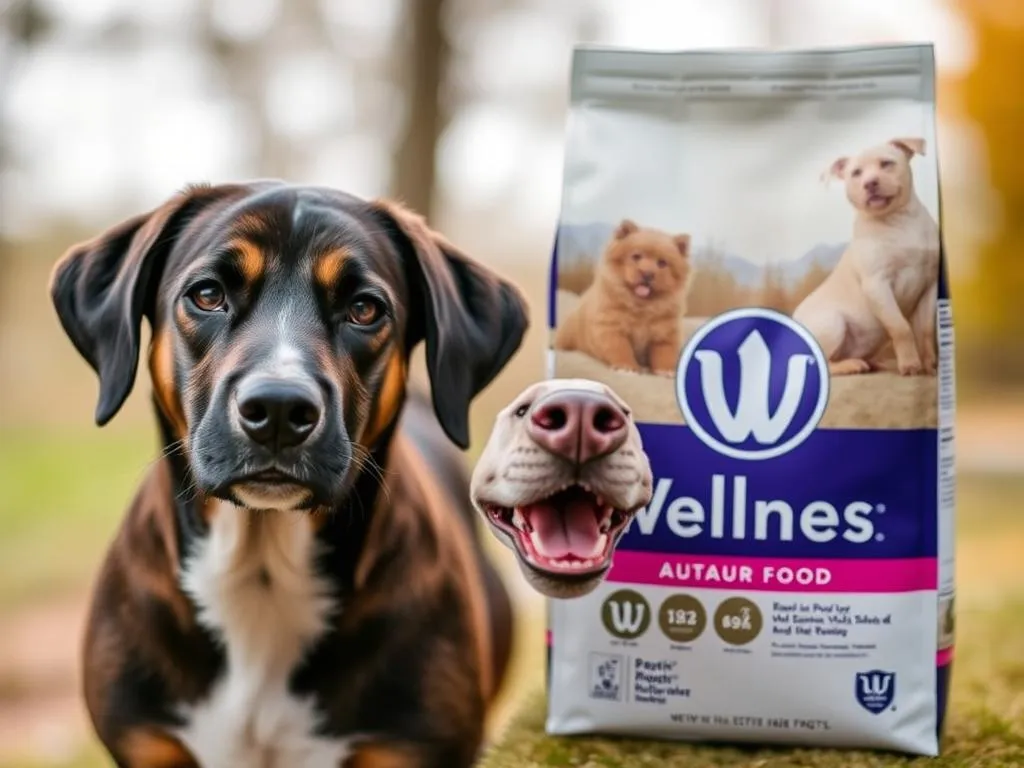
Introduction
Dog nutrition is a fundamental aspect of pet care that directly impacts your furry friend’s health and well-being. Choosing the right dog food can be overwhelming, especially with the myriad of brands available on the market. Two prominent players in the industry are Merrick and Wellness. This article delves into a comprehensive comparison of Merrick vs Wellness dog food, examining their ingredient quality, nutritional profiles, and suitability for different canine needs. By the end, you will have a clearer understanding of which brand may be the better choice for your dog.
Understanding Dog Nutrition
Basic Nutritional Needs of Dogs
Understanding the basic nutritional needs of dogs is crucial for their overall health. Dogs require a balanced diet consisting of macronutrients and micronutrients.
- Macronutrients:
- Proteins are essential for muscle development and repair. High-quality protein sources include chicken, beef, and fish.
- Fats provide energy and support cell structure. Omega-3 and Omega-6 fatty acids are particularly beneficial for skin and coat health.
-
Carbohydrates offer a source of energy and aid in digestion. Whole grains and vegetables are preferred carb sources.
-
Micronutrients:
-
Vitamins and minerals play vital roles in various bodily functions, including immune support, bone health, and metabolism.
-
Water is equally important, as it aids digestion, nutrient absorption, and temperature regulation.
Life Stages and Nutritional Requirements
Dogs’ nutritional needs vary based on their life stages.
- Puppies require higher protein and fat content to support their rapid growth and energy levels.
- Adult dogs need a balanced diet to maintain health and prevent obesity.
- Senior dogs may require specialized formulas that cater to joint health and lower calorie content.
Additionally, breed size plays a significant role in dietary needs. Large breeds may benefit from diets that support joint health, while small breeds often need higher calorie density.
Common Nutritional Myths
There are several myths surrounding dog nutrition that need addressing:
- Myth: Grain-free diets are always better.
-
Truth: While some dogs have grain allergies, most can digest grains without issues. A grain-free diet is not inherently superior.
-
Myth: Dogs can thrive solely on meat.
- Truth: Dogs need a variety of nutrients that come from different food sources, including vegetables and grains.
Overview of Merrick Dog Food
Brand History and Philosophy
Merrick Pet Care was founded in 1988 by Garth Merrick in Texas. The brand prides itself on creating high-quality, nutritious food for pets. Merrick’s philosophy centers around using real, whole foods and ensuring transparency in sourcing.
Product Range
Merrick offers a diverse range of products, including:
- Dry food: Various formulas tailored for different life stages and dietary needs.
- Wet food: Rich in protein and moisture, ideal for picky eaters.
- Treats: Healthy options that can complement a dog’s diet.
Merrick also provides special formulas such as grain-free and limited ingredient diets, catering to dogs with specific sensitivities.
Ingredient Quality
Merrick sources its ingredients from trusted suppliers, emphasizing the use of high-quality proteins and fresh produce. Common ingredients include:
- Deboned meat as the primary protein source.
- Fruits and vegetables such as sweet potatoes and blueberries, which provide antioxidants and vitamins.
Merrick is transparent about its ingredient sourcing, making it easier for dog owners to understand what they’re feeding their pets.
Nutritional Analysis
Merrick products generally feature a robust nutritional profile. For instance, typical formulas may contain:
- Protein: 30-38%
- Fat: 15-20%
- Carbohydrates: 30-40%
These values can vary based on the specific product line, but Merrick aims to maintain a high protein-to-carb ratio, which aligns with a dog’s natural dietary needs.
Overview of Wellness Dog Food
Brand History and Philosophy
Wellness Natural Pet Food was established in 1997, focusing on holistic nutrition for pets. The brand emphasizes natural ingredients and a commitment to promoting long-term health.
Product Range
Wellness offers a comprehensive range of products, including:
- Dry food: Formulated for puppies, adults, and seniors, with various options to suit different dietary needs.
- Wet food: Rich in moisture and flavor, catering to dogs who prefer a softer texture.
- Grain-free options: Designed for dogs with sensitivities.
Special formulas like Wellness CORE, a protein-rich line, are also popular among dog owners.
Ingredient Quality
Wellness prioritizes high-quality ingredients, sourcing them from reputable suppliers. Common ingredients include:
- High-quality proteins like turkey and chicken.
- Whole grains such as brown rice and barley for energy.
The brand is known for its transparency, allowing pet owners to make informed choices about their dog’s diet.
Nutritional Analysis
Wellness products typically showcase a balanced nutritional profile. For example, common formulations may include:
- Protein: 28-36%
- Fat: 14-18%
- Carbohydrates: 30-35%
Like Merrick, Wellness aims for a high protein content that supports active and healthy dogs.
Merrick vs. Wellness: Key Comparisons
Ingredient Quality
When comparing Merrick vs Wellness dog food, ingredient quality is a significant factor. Both brands prioritize high-quality, whole food ingredients, but there are some differences:
- Merrick emphasizes the use of fresh, deboned meat as the primary ingredient, often accompanied by fruits and vegetables.
- Wellness also uses high-quality proteins but includes a broader range of whole grains in its formulations.
Nutritional Profile Comparison
A side-by-side comparison of popular products from both brands reveals some differences in macronutrient content.
| Nutrient | Merrick (Sample Product) | Wellness (Sample Product) |
|---|---|---|
| Protein | 34% | 30% |
| Fat | 16% | 14% |
| Carbohydrates | 38% | 36% |
Both brands provide a balanced diet, but Merrick often offers slightly higher protein levels, which may be advantageous for active dogs.
Special Dietary Needs
For dogs with specific dietary requirements, both brands offer suitable options:
- Merrick’s grain-free and limited ingredient formulas are ideal for dogs with allergies or sensitivities.
- Wellness offers grain-free options as well but provides a variety of holistic formulas that support overall health.
Price Comparison
Price is an essential consideration when choosing dog food.
- Merrick tends to be slightly more expensive due to its emphasis on high-quality ingredients.
- Wellness offers a range of products at various price points, making it accessible to a broader audience.
When evaluating cost, consider the value of quality ingredients and the specific needs of your dog.
Customer Reviews and Feedback
Popularity and Brand Loyalty
Both Merrick and Wellness enjoy strong customer loyalty. Many dog owners appreciate the quality and nutritional value of both brands, often citing improvements in their dog’s health and energy levels after switching to these foods.
Common Complaints and Praises
Positive feedback for both brands often highlights:
- Merrick: The quality of ingredients and palatability. Many dogs seem to enjoy the taste.
- Wellness: The holistic approach to nutrition and variety of options available.
Conversely, some common criticisms include:
- Merrick: The higher price point may be a deterrent for budget-conscious pet owners.
- Wellness: Some dogs may not prefer the texture or taste of certain formulas.
Expert Opinions
Veterinarians often recommend both brands for their high-quality ingredients and balanced nutrition. However, individual recommendations may vary based on specific dog needs. Expert reviews frequently commend Merrick for its protein content and Wellness for its holistic approach.
Making the Right Choice for Your Dog
Evaluating Your Dog’s Specific Needs
When deciding between Merrick vs Wellness dog food, assess your dog’s unique requirements:
- Consider their age, breed, weight, and health status.
- Consult with a veterinarian to determine the most suitable diet based on these factors.
Transitioning to a New Dog Food
Switching dog food brands should be done gradually to prevent digestive upset.
- Tips for transitioning:
- Start by mixing a small amount of the new food with the current food.
- Gradually increase the proportion of the new food over a week.
- Monitor for any signs of gastrointestinal upset, such as diarrhea or vomiting.
Conclusion and Recommendations
In the battle of Merrick vs Wellness dog food, both brands offer high-quality, nutritionally balanced options. Merrick shines with its high protein content and variety of formulas, while Wellness stands out for its holistic approach and diverse range of products. Ultimately, the best choice depends on your dog’s specific needs, preferences, and any dietary restrictions.
Choosing the right dog food is crucial for your pet’s health and happiness. It’s essential to prioritize quality ingredients and appropriate nutrition tailored to your dog’s unique requirements.









